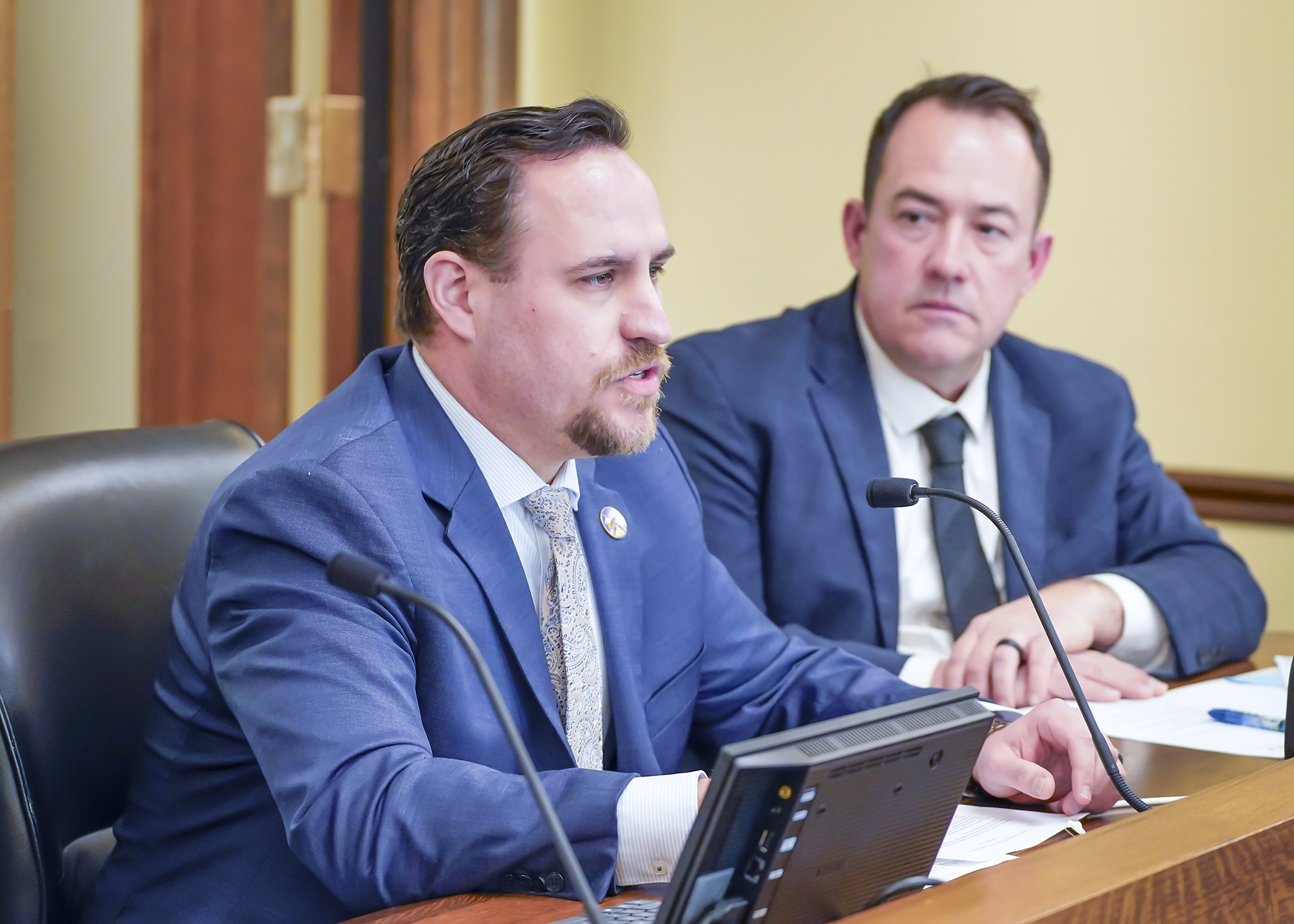Energy committee votes to lift nuclear moratorium, alter renewable deadlines

DISCLAIMER: On Jan. 24, 2025, the Minnesota Supreme Court held that 68 members are necessary to constitute a quorum of the House. This webpage may reflect proceedings that occurred before that decision was issued and are no longer active. See Simon v. Demuth, No. A25-0066 (Minn. Jan. 24, 2025) (consolidated with Hortman et al. v. Demuth et al., No. A25-0068).
Want to build a nuclear power plant? You currently can’t in Minnesota. But that could change.
Sponsored by Rep. Chris Swedzinski (R-Ghent), HF9 would revise a handful of provisions in state law regarding the use of renewable energy sources. And lifting the state’s moratorium on new construction of nuclear power plants is among its aims.
On Tuesday, the House Energy Finance and Policy Committee approved the bill, as amended, and sent it to the House Taxes Committee because one facet of the bill deals with expanding a sales tax exemption.
“This bill will make our electric utilities better able to ensure reliability and lower rates,” Swedzinski said. “Xcel Energy has recently approached the Public Utilities Commission with a request to raise rates 9% in 2025 and a potential almost 4% in 2026 due to the increased costs associated with meeting the DFL’s clean energy standard. And those increases will have a chilling effect on business expansion and development here in our state.”
Subject to some conditions, the proposed legislation would also:
- lift restrictions on the maximum output for a hydroelectric facility to meet the renewable energy standard;
- delay for three years the deadline for electric utilities to meet renewable, solar or carbon-free standards;
- prohibit the demolition of electric generating plants powered by fossil fuels;
- make it state policy to support carbon capture and sequestration technologies; and
- expand the sales tax exemption for residential heating fuels and electricity.
While some testifiers praised the potential lifting of the moratorium on new nuclear plant construction, Blake Johnson, government relations specialist for the Prairie Island Indian Community, expressed concern.
“Our reservation sits less than 700 yards away from a plant and over 1,000 tons of nuclear waste stored from that plant,” he said. “We are the closest community, Native or non-Native, in the nation to a nuclear power plant and stored nuclear waste.
“We understand the reason for this discussion, what with the increased need for baseload electricity that’s coming with data centers and artificial intelligence that must comply with the carbon-free standards passed in 2023,” Johnson said. “But, with increased nuclear generation, there will be increased nuclear waste. And Prairie Island has had a front-row seat to the nation’s failed nuclear storage policy.”
Rick Evans, director of regional government affairs for Xcel Energy, said the utility plans to keep the state’s nuclear power plants at Prairie Island and Monticello operating into the 2050s. But he said the company’s support for lifting the nuclear moratorium will “depend on the full support of the Prairie Island Indian Community.”
Evans added that Xcel Energy does not support the bill’s provision restricting the demolition of plants that use fossil fuels for electricity production, saying that it may frustrate community plans for redevelopment of a site and end up costing ratepayers more.
While no DFL members were in attendance, all Republican members were present and voted for the bill. Said Rep. Dave Baker (R-Willmar): “Energy needs to be the kind of committee that we all do in a bipartisan way when it comes to this kind of large policy. Because you can’t be swinging back and forth with policy.”
Related Articles
Search Session Daily
Advanced Search OptionsPriority Dailies
Ways and Means Committee OKs House budget resolution
By Mike Cook Total net General Fund expenditures in the 2026-27 biennium will not exceed a hair less than $66.62 billion.
That is the budget resolution approved Tuesday by the House Ways...
Total net General Fund expenditures in the 2026-27 biennium will not exceed a hair less than $66.62 billion.
That is the budget resolution approved Tuesday by the House Ways...
Minnesota's budget outlook worsens in both near, long term
By Rob Hubbard It looks as if those calling for less state spending could get their wish, judging from Thursday’s release of the February 2025 Budget and Economic Forecast.
A state su...
It looks as if those calling for less state spending could get their wish, judging from Thursday’s release of the February 2025 Budget and Economic Forecast.
A state su...